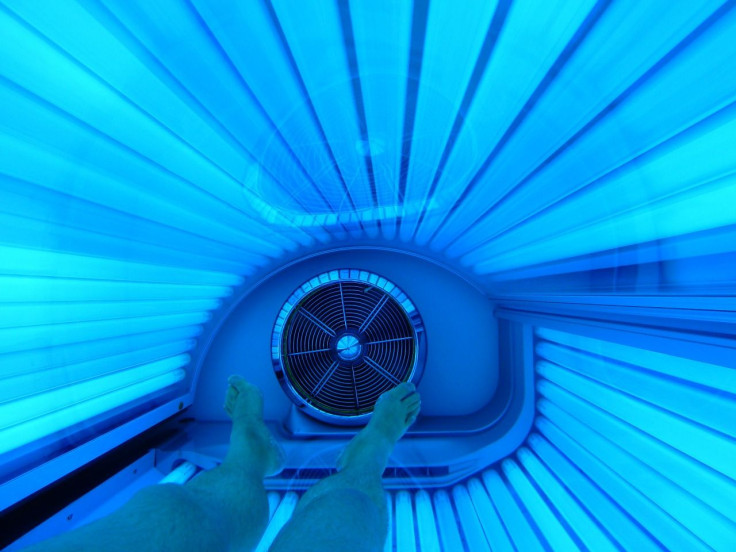Tanning Addiction Linked To Alcohol Dependence, Other Addictive Behaviors, Study Finds

Addicted to tanning? You may be more likely to have other addictive behaviors, according to a new study from the Yale School of Public Health (YSPH).
The study, published in the Journal of European Academy of Dermatology and Venereology, surveyed 499 white, non-Hispanic males and females who had previously tanned indoors or outdoors. After the participants completed an online survey, the researchers classified them as tanning dependent or not.
The researchers found that the participants who were tanning dependent were six times as likely to to be dependent on alcohol, five times more likely to exhibit “exercise addiction,” and three times as likely to suffer from Seasonal Affective Disorder (SAD). About 75 percent of the study subjects were female, according to a presentation by lead author Brenda Cartmel.
Read: Four Safe Tanning Tips For A Healthy Summer Glow
“We hope our findings will help researchers design interventions specifically targeted to help people who are tanning dependent and thus reduce skin cancer,” Cartmel said in a news release.
Participants in this study were recruited from a previous YSPH study, in which researchers found a strong link between tanning and basal cell carcinoma, a type of non-melanoma skin cancer. Upon this finding, the researchers testified before a state legislative committee about the health dangers of tanning and ultimately, passed a law banning tanning for those younger than 17 years ago, according to the news release.
In addition to the serious risk of skin cancer, indoor tanning can also cause premature aging, immune suppression, eye damage, and allergic reaction, the U.S. Food and Drug Administration reports.
See also: Addicted To Indoor Tanning? Psychologically Dependent Tanners With Skin Cancer Continue To Tan
Published by Medicaldaily.com



























